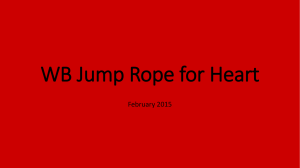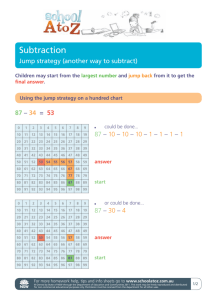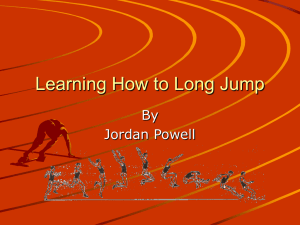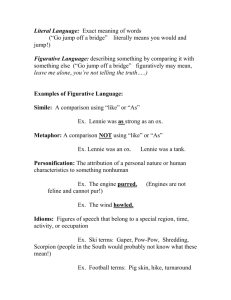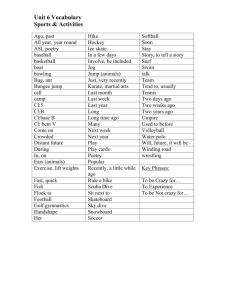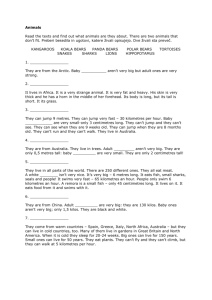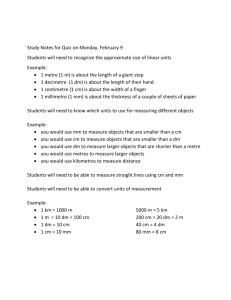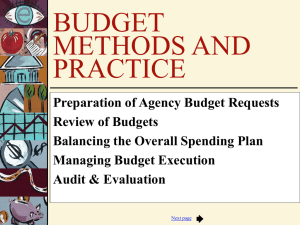Fitness Tests - Lornshill Academy
advertisement
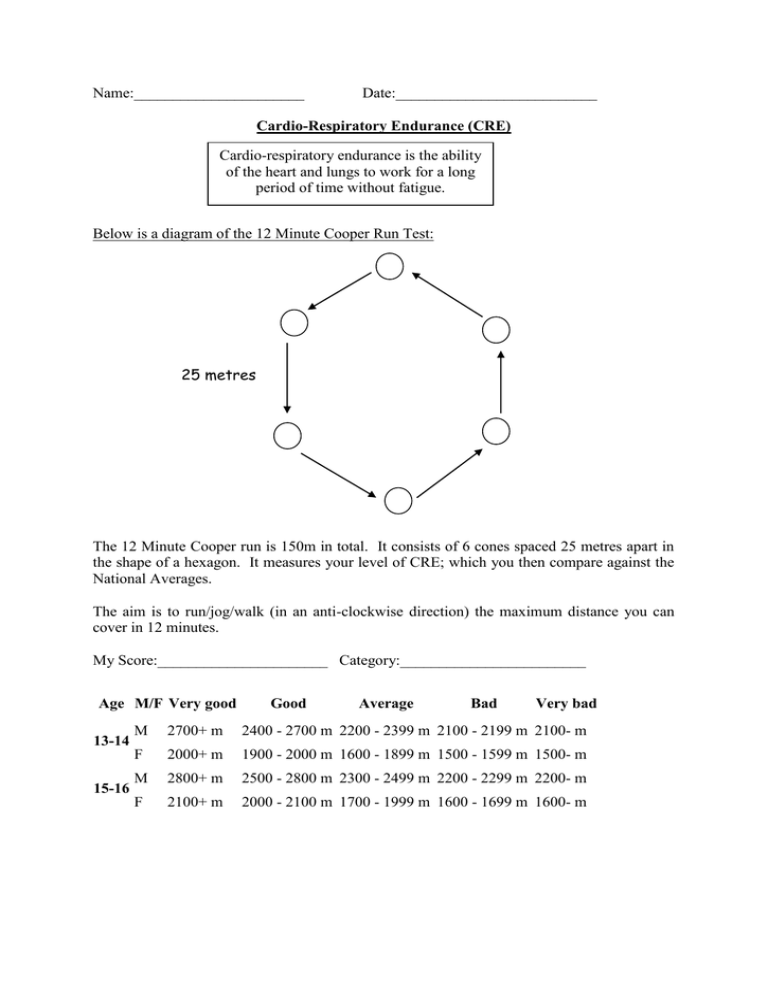
Name:______________________ Date:__________________________ Cardio-Respiratory Endurance (CRE) Cardio-respiratory endurance is the ability of the heart and lungs to work for a long period of time without fatigue. Below is a diagram of the 12 Minute Cooper Run Test: 25 metres The 12 Minute Cooper run is 150m in total. It consists of 6 cones spaced 25 metres apart in the shape of a hexagon. It measures your level of CRE; which you then compare against the National Averages. The aim is to run/jog/walk (in an anti-clockwise direction) the maximum distance you can cover in 12 minutes. My Score:______________________ Category:________________________ Age M/F Very good 13-14 15-16 Good Average Bad Very bad M 2700+ m 2400 - 2700 m 2200 - 2399 m 2100 - 2199 m 2100- m F 2000+ m 1900 - 2000 m 1600 - 1899 m 1500 - 1599 m 1500- m M 2800+ m 2500 - 2800 m 2300 - 2499 m 2200 - 2299 m 2200- m F 2100+ m 2000 - 2100 m 1700 - 1999 m 1600 - 1699 m 1600- m Name:______________________ Date:__________________________ Standardised Fitness Test-Agility Illinois Agility Test Place four cones 3.3 metres apart. Start by lying on the floor, and then run the course as fast as you can on the signal issued by a teacher/coach. The teacher will time your effort and compare against national averages My Score:______________________ Category:________________________ Test averages for 15-19year olds. Rating Males Females Excellent < 15.2 < 17.0 Above Average 16.1-15.2 17.9-17.0 Average 18.1-16.2 21.7-18.0 Below Average 18.3-18.2 23.0-21.8 Poor > 18.3 > 23.0 Name:______________________ Date:__________________________ Power Power is the combination of strength and speed. Power - this occurs when strength and speed are used simultaneously. An example is the start of a swimming event when the swimmer pushes forcefully and fast from the poolside to achieve an effective start. Power is also required in Badminton to hit an explosive Overhead Clear. This power will help the shuttle travel to the very back of the court pushing my opponent back and creating space at the front. I can also use power to drive the shuttle into open space by hitting a smash with maximum force quickly. One test for power is the Standing Broad Jump. Stand with your feet comfortably apart and your toes immediately behind the start line. Bend your knees and jump forwards as far as you can. The distance that you score is measured from your rear heel back to the start line. You are allowed two attempts. A second test for power is the Standing Vertical Jump where you measure power with the help of a jump metre . Standing with your legs straight on the mat of the jump metre, pull the string taut. In one smooth movement, bend the knees and explode upwards, record the score. Repeat and take the highest score. Both tests above may not show reliable results as Badminton requires power in the upper body. A test we can use is the Seated Medicine Ball Throw. The athlete sits on the floor with his legs fully extended, feet 24 inches (~60 cm) apart and the back against a wall. The 4kg ball is held with the hands on the side and slightly behind the centre of the ball. The forearms are positioned parallel to the ground. The athlete throws the medicine ball vigorously as far straight forward as he can while maintaining the back against the wall. The best result of three throws is used with measurements recorded to the nearest centimetre. Broad Jump My Score:______________________ Category:________________________ Vertical Jump My Score:______________________ Category:________________________ Seated Throw My Score:______________________ Category:________________________
